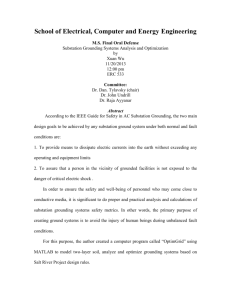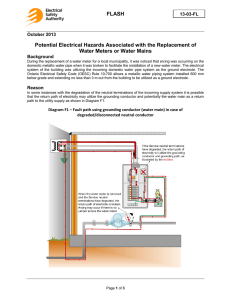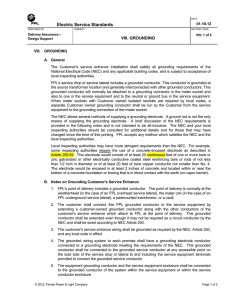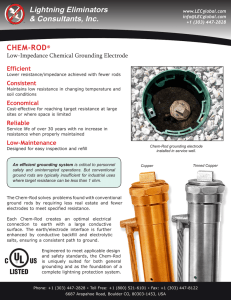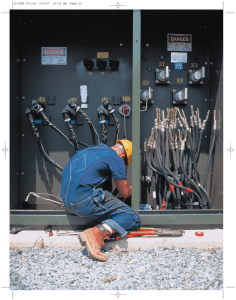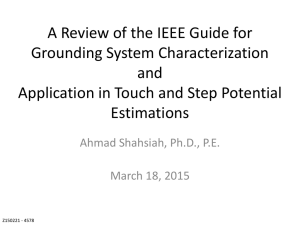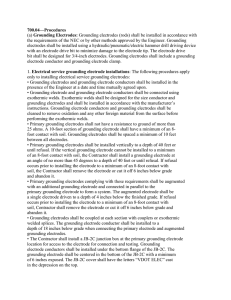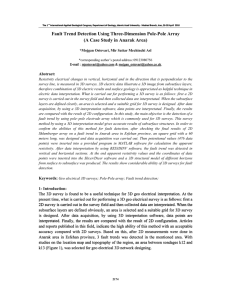Touch and Step Potential Testing
advertisement
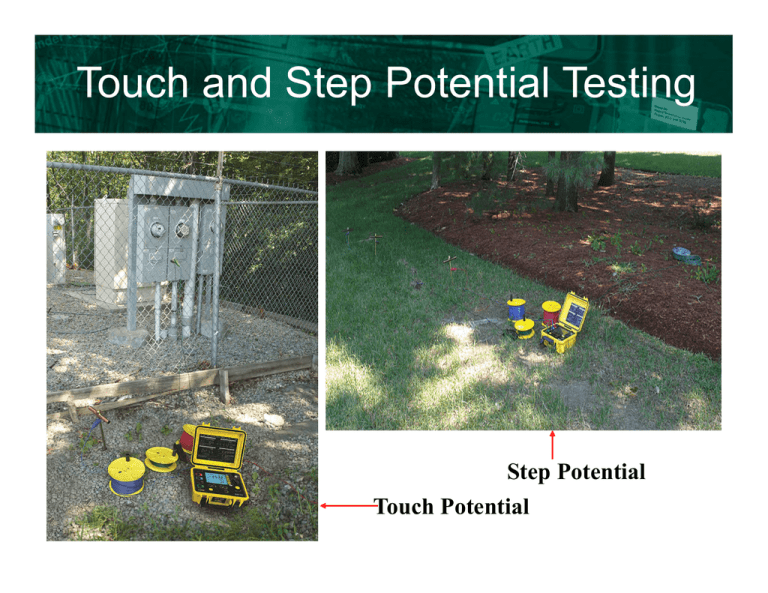
Touch and Step Potential Testing Step Potential Touch Potential The importance of testing and designing a low resistance grounding system Touch and Step Potential The importance of testing and designing a low resistance grounding system Step Potential: Difference in surface potential experienced by a person’s feet bridging a distance of 1 meter (3 feet) without contacting any other grounded surface. Step Potential Test 1. Connect the X lead to the grounding system 2. Insert the injector electrode at the approximate distance of the projected fault away from the grounding system and connect the Z lead to it 3. Insert two electrodes 3 feet apart (the distance of a human step) at the approximate location of the expected position of the person. All electrodes should be in a straight line. 4. Attach the Xv lead to the electrode closest to Z and the Y lead to the other electrode 5. Start the test and record the resistance reading 6. Determine the expected fault current and multiply it by the resistance reading to get the step potential voltage Example: Resistance reading (R) = 0.5 ohms Fault current (I) = 4000 Amps Step potential (E) = R*I = 0.5*4000= 2,000 Volts 1 Meter (3 Ft) The importance of testing and designing a low resistance grounding system Touch Potential: Potential difference between grounded metallic structure and the surface potential at the point where a person is standing, while at the same time having hands in contact with a grounded structure Touch Potential Test 1. Connect the X and Xv leads to the metal object that would be touched 2. Insert an electrode approximately 1 meter (3 ft) from the object and connect the Y lead to it 3. Insert an electrode at the approximate location of the expected fault and connect the Z lead to it 4. Start the test and record the resistance reading 5. Determine the expected fault current and multiply it by the resistance reading to get the touch potential voltage Example: Resistance reading (R) = 0.5 ohms Fault current (I) = 5000 Amps Touch potential (E) = R*I = 0.5*5000= 2,500 Volts 1 Meter (3 Ft)
